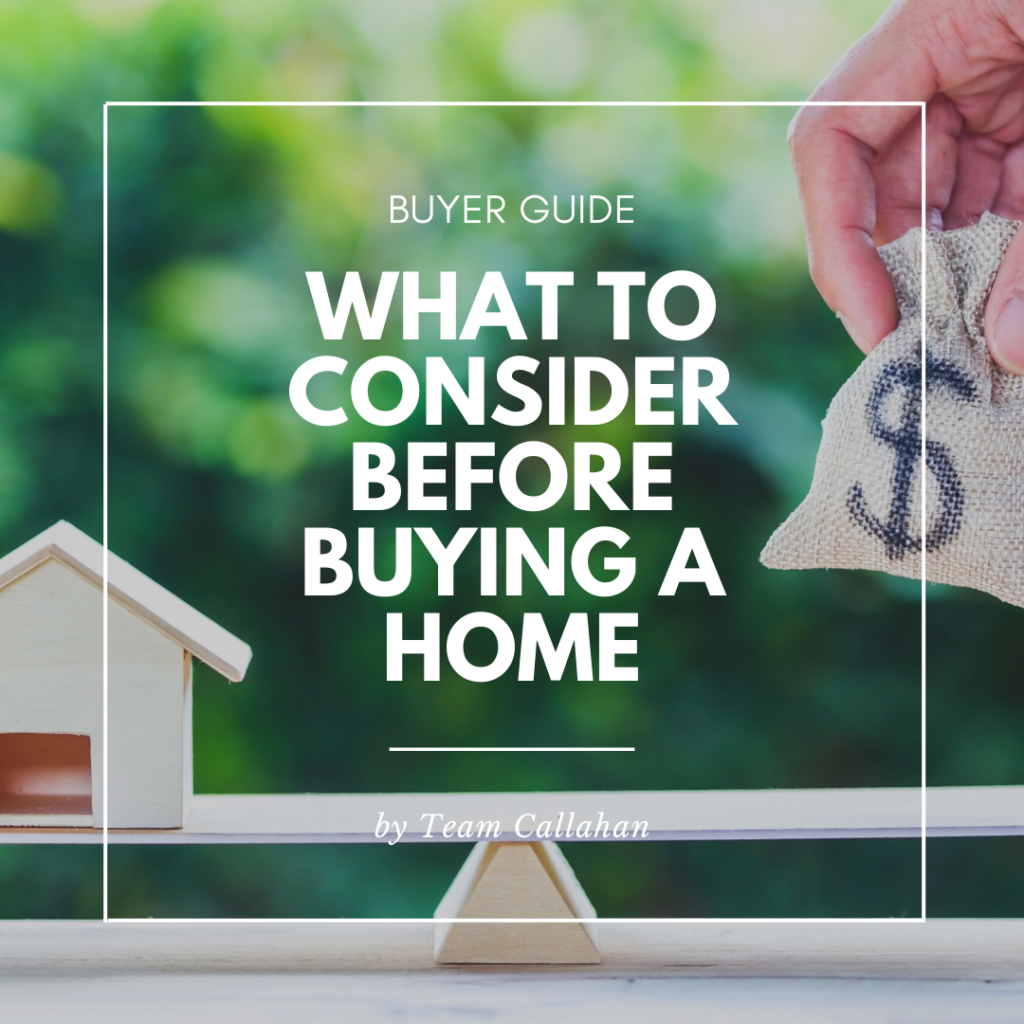
Buying a home is a big decision. And sometimes it can feel overwhelming. Here are five things you should consider before buying a home.
1. Commute Time To Work or School
That house you have your eye on is darling. Picture perfect actually. Except for the fact that you’ll loose 2 hours of your day sitting in traffic on your way to and from work. Be sure to do the test drive to school or work on a regular school or work day. Sure you breezed there in 20 minutes on that random Sunday afternoon. But what about Monday morning traffic? Check the commute time to places you’ll be travelling frequently to make sure the commute time is worth it.
2. Monthly Mortgage Payment
It sounds elementary, and yet you’ll want to review that Lender disclosure thoroughly and make sure you’re understanding the full cost associated with your mortgage payment. It will include your principle and interest payments, homeowners insurance, and more.
3. How Much Money You’ll Need For Closing
Just because you’re putting 5% down on a $200,000 home doesn’t mean you’ll just need $10,000 at closing. Most likely you’ll need more. There are closing costs, lender fees, attorney fees, your actual down payment, funds to prime your escrow account, and some miscellaneous recording charges to round it all out. Your lender will be able to give you an estimate of actual dollars needed to buy a home in your price range. #knowbeforeyouowe
4. Are You In A Flood Zone?
Is the home you love in a flood zone? If so, it’s best to know early on. Depending on the elevation, flood map, and ventilation, you’ll be looking at a flood insurance premium of $500 to $15,000 per year. If the house you’re buying is in a flood zone and you’re getting a mortgage, your Lender will require you to carry a flood insurance policy. This amount will be paid out of your escrow account and will impact your debt to income ratios. The best plan is to run an address by your insurance agent if you think it’s in a flood zone. This way you know if the home is still within your affordability range.
5. How Much Are The Average Utilities?
That 1945 bungalow is absolutely adorable. It’s deep Craftsman eaves. The detail on the front door. That cozy nook in the kitchen. Those single pane windows and drafty old fireplace. Whoops. There went the adorable part. It’s a good practice to check out the average utility costs for a home you’re buying while you’re still under contract. Those monthly utility bills factor into affordability when you think about it. A cute little 1200 sq. ft. bungalow with a $300 average power bill either has someone who likes living in a meat locker in July or there are some major energy inefficiencies that you’ll want to look at.





